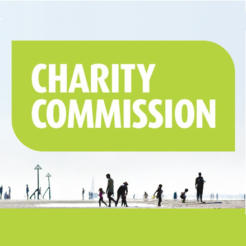The Charity Commission has opened a statutory inquiry into a Sheffield-based charity that was previously part of its class inquiry, for again failing to submit its annual accounts on time.
Sheffield Reclamation Ltd was due to submit accounts for the year ending 31 March 2014 by the end of January 2015 but failed to file them before the deadline.
The charity was part of the class inquiry by the regulator for defaulting on its accounts on two or more occasions. The charity came out of that inquiry ten months ago after submitting outstanding accounts for the years 2009, 2010, 2011, 2012 and 2013.
A statement from the Commission said it had “exercised its statutory power to direct the trustees to prepare and submit the missing information”.
The regulator said the inquiry would “examine issues in detail” to “ascertain whether there has been misconduct and mismanagement” and “decide what action needs to be taken to resolve the serious concerns, if necessary using its investigative, protective and remedial powers to do so”.
Last Friday, the Commission called for an “explanation for the repeated default” which it said it would examine before considering further enforcement action.
The charity has been given a new deadline of 22 April 2015.
According to the charity's website, it provides support for adults with learning disabilities to help them gain employment and participate in leisure and social activities within the community.
The charity was approached by Civil Society News for comment but did not respond at the time of going to press.
‘No excuse’
On Friday, the Commission released reports into two charities involved in the class inquiry for failing to submit accounts.
The Michael Batt Charitable Trust failed to submit “annual accounts, reports and annual returns” to the Commission for the years ending 30 November 2012 and 30 November 2013.
According to the regulator, the charity "remained in default of its obligations under the Charities Act 2011”, despite "various computer generated reminders".
The charity’s outstanding accounts were submitted one month after the Commission’s final deadline of 17 November 2014 and the regulator was informed by the charity that it had experienced “problems with their accounts as a result of changing auditors”.
But the regulator concluded that “the reason the charity gave for non-compliance was not a legitimate excuse”.
“The charity’s trustees were in default of their legal obligations to file accounting information with the commission,” the regulator said. “This was mismanagement and misconduct in the administration of the charity and a breach of their legal duties.
“The commission used its information gathering powers under section 52 of the act to order and obtain bank records and financial information of the charity relating to the missing years accounts. These have been used in connection with the commission’s scrutiny of the accounts.”
Gaunts House Charitable Foundation submitted its accounts 22 days after the Commission’s final deadline and also became subject of the class inquiry.
The Charity Commission said “the charity gave no reason for non-compliance” and “trustees were in default of their legal obligations to file accounting information to the Commission”.
The Commission’s report said: “The Commission ensured the charity complied with its legal obligations to submit their annual accounting information. A set of accounts were filed and as a result over £479,000 of charitable income is now transparently and publicly accounted for on the register.”
In both cases, the regulator said issues were raised “for the wider sector”.
“It is important that the financial activities of charities are properly recorded and their financial governance is transparent,” it said. “Charities are accountable to their donors, beneficiaries and the public. Donors to charity are entitled to have confidence that their money is going to legitimate causes and reaches the places that it is intended to. This is key to ensuring public trust and confidence in charities.
“The position and role of a trustee is an important one, a responsibility held jointly with the other trustees of a charity. The task of submitting accounts might be delegated to one person, but all trustees are responsible for making sure this happens.”









